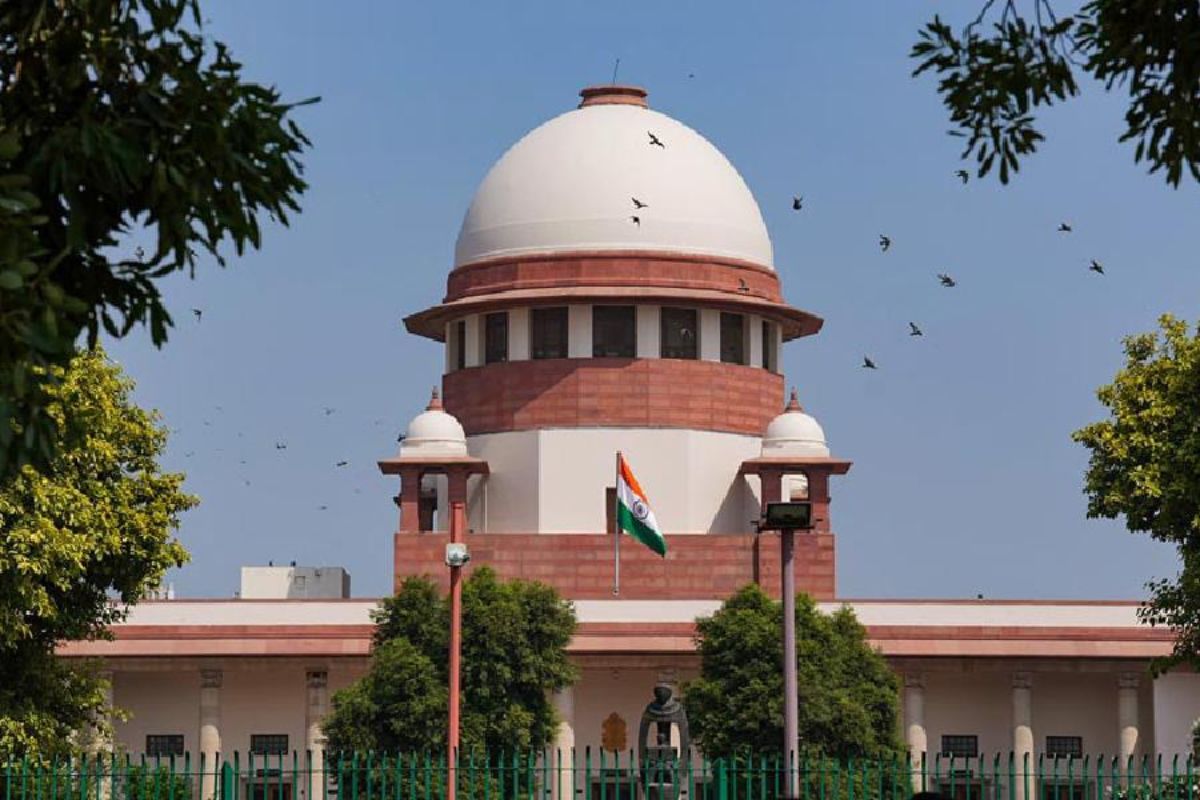The Supreme Court on Thursday asked the Central government to follow the CBI manual in the search and seizure of the digital devices of media persons including their mobile phones, as it (the government) sought “some more time” to frame the guidelines regulating the handling of the seized electronic devices, their scanning and accessing of data.
Posting the matter for February 6, 2024, a bench comprising Justice Sanjay Kishan Kaul and Justice Sudhanshu Dhulia said that till government comes up with the guidelines to regulate the handling of the seized digital devices – mobile phones, laptops or desktops –the CBI manual will be followed in the course of their search and forensic examination.
Advertisement
The bench posted the matter for February, as Additional Solicitor General S V Raju, appearing for the Central government, told the court that the framing of the guidelines will take some more time as deliberation on the issue have taken place including with the experts from the forensic laboratory.
Raju told the court, “We have deliberated over this. In consultation with forensic laboratory experts also… Also the CBI manual. This will take some time.”
Recording the statement by ASG Raju, the bench in its order said, “Learned ASG submits that in the conspectus of the existing CBI manual and Karnataka cybercrime investigating manual and the suggestions put forth by petitioners, number of discussions has been held, he will come up with something within 6 weeks. In the meantime, he assures the court that for the time being, at least the CBI manual will be followed.”
Justice Kaul also said, “Problem is the limbo in the interregnum. Notice was issued in 2021. You have been holding meetings, but when will we have an outcome?
In the course of the hearing as ASG Raju told the bench that they require a bare minimum one month for formulating the guidelines, Justice Kaul snapped back, “Don’t do the bare minimum. Do the maximum. Are you willing to make a statement that you will in the meantime follow any of the existing manuals?”
ASG Raju said, “The CBI manual.”
Objecting to it, senior advocate Nitya Ramakrishnan, appearing for the Foundation for Media Professionals, told the bench that they have circulated guidelines, but the State has not come up with anything. Referring to the guidelines framed by the top court starting with Vishaka (1997) onwards, she urged the bench to issue guidelines, stating that the “they don’t seem to be interested”.
The Vishaka Guidelines were issued by the top court in 1997 to curb the sexual harassment of women at work place. These guidelines were superseded in 2013 by the enactment of the Sexual Harassment of Women at Workplace (Prevention, Prohibition and Redressal) Act.
Justice Dhulia told senior advocate Nitya Ramakrishnan that “At least you’ll get hash value if they follow the CBI manual, which you are not getting today.”
The last hearing of the matter on December 6, the Supreme court had told the Central government that two years have passed since the filing of the petition, and the notice was issued and had asked the government to follow some “time frame”.
“When did we issue notice? Some time frame has to be followed. Two years have passed”, the bench had observed admonishingly.
In the earlier hearing on November 7, the top court had said that the search and seizure of digital devices of the media professionals is a “serious matter” that includes the protection of the sources of media professions and their right to privacy.
Justice Kaul had observed that “These are media professionals, they will have on their phone’s sources, contacts. So, there must be some guidelines. This is serious.”
The top court is hearing of a public interest plea by the Foundation for Media Professionals seeking framing of the guidelines for the search and seizure of digital devices by law enforcement agencies.
The petitioner Foundation has sought adequate legal safeguards for the right to privacy in the digital space.
The petition has stated the increasing reliance on personal digital devices by media professionals for their journalistic work, which often involves handling “confidential information of public value, private correspondence with sources and whistle-blowers, and remote collaboration to break news stories in the public interest”.











